Scientific Committee
All ===> 76
-
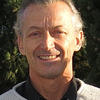
Christian Dupraz / Chair of the Scientific Committee
France+
Christian Dupraz is a senior scientist at INRA (French National Institute for Agronomical Research). He worked on fodder trees, afforestation techniques including treeshelters, agroforestry and agrivoltaic systems. He set up agroforestry experiments in France that have been continuously monitored for almost 25 years, providing unique datasets. With his team and many colleagues from different countries he developped biophysical models of tree-crop interactions in alley-cropping systems, and evidenced the high Land Equivalent Ratio of temperate alley-cropping systems. He wrote the reference guidebook about temperate zone agroforestry entitled "Agroforestry : trees and crops" first published in 2008. Christian Dupraz was the founding President of the French Agroforestry association in 2007 and of the European Agroforestry Federation (EURAF) in 2011. He has been committed to lobby for agroforestry at the French and European levels since 1998. He is also an elected member of the Occitanie Region Parliament.

Marie Gosme / Co-chair of the Scientific Committee
France+
Dr Marie Gosme did her PhD at INRA Rennes on spatio-temporal modelling of soil-borne plant diseases (2004-2007) and subsequently worked on epidemiological and evolutionary models at the University of Cambridge, UK (2007-2008). She joined the Agronomy team at INRA Grignon from 2008 to 2014 to work on insects' and pathogens' population dynamics at the landscape scale, taking into account the spatial configuration of cropping systems and non-crop habitats. She now works at INRA Montpellier, in the SYSTEM research unit, studying cereal-based agroforestry systems and more specifically the effect of trees on crop growth, development and yield in current and future climate.

Gerry Lawson / Co-chair of the Scientific Committee
Centre for Ecology and Hydrology - Edinburg, UKUK / Spain+
Gerry Lawson has served as Vice President of the European Agroforestry Federation, and is a UK delegate to the EURAF - Executive Committee He trained as a plant ecologist and forester and has worked in the Antarctic, Europe, Africa and Central America on autecology, silviculture, forest ecology, pollution control with macrophytes, climate change impacts, agroforestry modelling and land use policy interactions. Latterly he was Science Programme Manager with the UK Natural Environmental Research Council and responsible for Open Data Policies. He is currently a part-time Research Fellow at the Centre for Ecology and Hydrology, Edinburgh and is based in central Spain. He is a member of the UK Institute of Chartered Foresters and the Institute of Biologists.
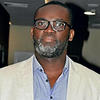
Richard Asare
Ghana+
Dr Richard Asare works for the International Institute of Tropical Agriculture (IITA) as the Coordinator on Cocoa Research for Development. He currently serves as the coordinator for the Global CocoaSoils Program and the CGIAR’s program on Climate Change, Agriculture and Food Security (CCAFS) that looks at mainstreaming climate smart agriculture in cocoa systems in Ghana. He was the Focal Point, coordinating scientific activities under the CGIAR Research Program on Integrated Systems for the Humid Tropics (Humidtropics) in West, East and Central Africa. Prior to that he was the Regional Cocoa Agroforester for the defunct Sustainable Tree Crops Program (STCP) in West and Central Africa. He worked as an Agricultural Advisor with the DANIDA Forest Seed Center (DFSC – Min. of Foreign Affairs), Center for Forest, Landscape and Planning (FLD) all in Denmark and also worked as a cocoa consultant for the World Cocoa Foundation (WFC), Winrock International and SNV in West and Central Africa.

George Ashiagbor
KNUSTGhana+
Ing. George Ashiagbor is a Research Fellow and Lecturer at the Faculty of Renewable Natural Resources of the Kwame Nkrumah University of Science and Technology (KNUST), Ghana. His research is focused on Geographic Information Science and Remote Sensing applications in Natural resources. He Coordinates Graduates Program in Geo-Information Science for Natural Resources Management a partners with the International Institute for Geo-Information Science and Earth Observation (ITC) that trains professionals based in Ghana and Africa to use GIS and Remote Sensing technologies in natural resources management. Prior, he worked as the GIS Manager for Agroforestry Practices for Resource Poor livelihood project, a CIDA funded collaboration and administrator of the GIS lab. He is also the GIS lead at KNUST on the FOREST 2020 project, a UK Space Agency’s collaboration focused on the protection of forests and related ecosystems using Earth Observation.
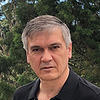
Jacques Avelino
France+
Jacques Avelino is a plant pathologist at CIRAD, the French Agricultural Research Centre for International Development. He is currently posted at IICA (Inter-American Institute for Cooperation on Agriculture), within the PROMECAFE network, and based at CATIE (Centro Agronómico Tropical de Investigación y Enseñanza, Costa Rica) since 2007. He has worked on coffee pests and diseases since 1986, and particularly on the epidemiology of the coffee leaf rust caused by the fungus Hemileia vastatrix. He has also worked on the Moniliophthora pod rot of cacao since 2007. In addition, he has 10 years of experience on coffee quality. Throughout his career, he has established research and development operations in Costa Rica, Honduras, Guatemala, Mexico, Nicaragua, Venezuela, Indonesia, Laos, Papua New Guinea.
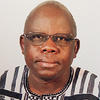
Jules Balaya
Kenya+
Jules Bayala is a Principal scientist-Sahel Ecosystems with the World Agroforestry Centre (ICRAF) and “Directeur de Recherches CAMES”. He holds a PhD in Ecophysiology and Agroforestry from the University of Wales, Bangor, UK. He is currently working on establishing key directions for the agroforestry research and development programme in West and Central Africa region of ICRAF. His research focus is on the soil-plant-water continuum in this region, physiology of agroforestry species in the face of changing climate, climate smart agriculture as well as climate information delivery systems.
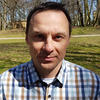
Robert Borek
Poland+
Robert Borek is adjunct professor in the Department of Bioeconomy and Systems Analysis in Institute of Soil Science and Plant Cultivation – State Research Institute in Puławy, Poland. My scientific interests are focused on short-rotation woody crops, low-carbon farming practices, process-based modelling, greenhouse gas emission estimations in agriculture, LCA assessments of agricultural products, water balance of cropping systems, biodiversity, CAP policy. Since 2015, I am the chair of Polish Agroforestry Association, established in the same year.
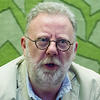
Simone Borelli
Italy+
Simone Borelli holds a first degree in Forest Science from the Universitá della Tuscia, Italy, an M. Sc. in Watershed Management from the University of Arizona and Postgraduate Diploma in Public Management from the University of London. He has worked for the Food and Agriculture Organization of the UN (FAO) for over 20 years in different positions and is currently responsible for the Agroforestry and Urban Forestry programme in the Forestry Department. In this capacity, he provides technical support to FAO field projects, provides policy advice to member countries and develops technical publications. In addition to FAO, he has also worked for WWF, IPGRI (now Bioversity) and as a consultant for public institutions and the private sector.

Antonio Brunori
PEFCItaly+
Antonio Brunori is currently Secretary General of PEFC Italy (Programme for Endorsement of Forest Certification schemes) and editor of “Ecodelleforeste.it” web magazine. He is Ph.D. in Arboriculture (University of Perugia) and is graduated with a M.Sc. in Forestry (University of Firenze – Italy) and with a M.Sc. in Agroforestry (University of Florida – USA); he worked as professional forester in Israel and Brazil; as technical journalist, worked as Coordinating editor of “Sherwood- Foreste e alberi oggi” and Chief editor of “AF- Agronomi e Forestali”. He was covering the role of responsible for International relationship of the UNAGA (Italian Union of Agricultural Journalists) until 2013. His interests focus on sustainable forest management certification, Non Wood Forest Products, environmental services provided by forests and tree plantations, and environmental impact assessment of human activity on natural and agricultural environment. He is member of the PEFC international Task force on “Trees outside Forest” certification.

Louise E. Buck
Cornell UniversityUSA+
Louise E. Buck is a natural resources management specialist on the faculty of Cornell University’s Department of Natural Resources, and leads the Innovation in Collaborative Landscape Management program at EcoAgriculture Partners. Dr. Buck specializes in designing research methods and education curricula that engage diverse experts in learning how to manage agriculture and natural resources for sustainable outcomes. As a Senior Scientist with CIFOR for 10 years Louise worked on adaptive collaborative management systems including participatory scenario generation and stakeholder-engaged monitoring and evaluation. As a Consulting Scientist with ICRAF for five years she led work on participatory agroforestry technology generation. As CARE’s Regional Technical Advisor for Agriculture and Natural Resources in Eastern and Southern Africa for five years Louise linked agroforestry extension training with multi-disciplinary action research. For the past 15 years Louise’s research, teaching and outreach have focused on building frameworks, tools and curricula to support leadership and scholarship in integrated landscape management.

Paul Burgess
Cranfield UniversityUnited Kingdom+
Paul Burgess is Reader in Crop Ecology and Management at Cranfield University and Secretary of the UK Farm Woodland Forum. He has led research on the bio-economics of farm woodlands and silvoarable agroforestry in the UK, and led the bio-economic modelling work-package within the EU Silvoarable Agroforestry For Europe (SAFE) project (2001-2005). He has recently co-ordinated the EU-funded AGFORWARD project (2013-2017) which involved about 80 researchers working together to promote agroforestry in Europe. The project established a systematic assessment of agroforestry in Europe, worked with 40 stakeholder groups to address specific challenges, evaluated the impacts of agroforestry at larger scales, and provided policy guidance. He lectures on the Masters courses in Environmental Management for Business and Future Food Sustainability at Cranfield University. He has also worked on perennial crop systems, with a particular focus on tea, in Eastern and Southern Africa.

Georg Cadisch
University of HohenheimGermany+
Prof. Dr. Georg Cadisch is currently Professor at the section Plant Production in the Tropics & Subtropics and head of the Institute of Agricultural Sciences in the Tropics (Hans-Ruthenberg-Institute) at the University of Hohenheim, Stuttgart, Germany. His main research interests are nutrient cycling and carbon sequestration in farming systems including in tropical agroforestry systems. As special focus has been on nitrogen fixation in legumes and their impact on soil fertility and soil organic matter dynamics. Recent studies included climate change impact on soil-plant production systems as well as soil degradation. Stable isotope (15N, 13C and 18O, SIP-DNA, CSSI) and infrared spectroscopy (DRIFT-MIRS, Py-MIRS) are frequently used to obtain a better insight into processes. A further main focus has been on the development of integrated dynamic land use change impact modelling concepts and interactions with socio-economic approaches. He has experiences in Brazil, Colombia, Ethiopia, Indonesia, Cameroon, Kenya, Mexico, Nicaragua, Philippines, Southern China, Thailand, Uganda, Vietnam, Zimbabwe

Rémi Cardinael
CIRADZimbabwe+
Rémi Cardinael is a Soil Scientist at CIRAD, currently based at the University of Zimbabwe. He holds a MSc in Agronomy from AgroParisTech, and a PhD in Soil Sciences from the University of Paris-Saclay, defended in 2015. He has been working on agroforestry systems, soil organic matter and root dynamics with different research institutes, including ADEME, AgroParisTech, INRA, IRD, and the University of Guelph (Canada). So far, he has published 10 articles in peer-reviewed journals, most of them dealing with soil processes and agroforestry. He is now coordinating several research projects on climate change mitigation, adaptation, and food security through various agroecological practices, including intercropping, conservation agriculture, and agroforestry. He is also involved in research projects concerning the “4 per Thousand” initiative. He is currently a guest Editor for a special issue in the Plant & Soil journal, entitled “Agroforestry: a belowground perspective”.

Delia Catacutan
Vietnam+
Dr. Delia C. Catacutan trained in natural resources management, she has over 20 years research experience on the institutional, social and policy dimensions of agroforestry and integrated natural resources management, in Asia and Africa. She was senior social scientist and country representative of the World Agroforestry Centre (ICRAF) to Vietnam from 2012 to April 30th 2018. She also coordinated gender research and mainstreaming in ICRAF from 2011 to 2016, during which, she focused on building gender research capacity and published the first special journal issue on Gender and Agroforestry. Dr. Catacutan has a PhD in Natural & Rural Systems Management from the University of Queensland, Australia and a post-doc on Sustainability Science at Harvard University.
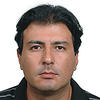
Rolando Cerda
CATIECosta Rica+
Rolando Cerda is agronomist engineer (UMSA, Bolivia), with a master in Ecological Agriculture and Agroforestry (CATIE, Costa Rica), and Ph.D. in Functional Ecology and Agronomic Sciences (SupAgro, France). Dr. Cerda is a researcher of PRAGA and professor of the postgraduate school in CATIE, specialist in agroforestry systems with perennial crops (coffee, cocoa, homegardens and others). He has worked in several projects of research and development at regional levels. He coordinated the development of farmer field schools, aiming to reach more than 10.000 rural families in Central America. He developed research on the assessment of multiple ecosystem services (provisioning, regulation of pests and diseases, soil quality, carbon sequestration) for the design/management of sustainable agroforestry systems. He also participated in studies on the evaluation of carbon footprint and carbon balance of production systems. He has experience also in studies of identification, evaluation, prioritization and promotion of climate smart agriculture practices (aiming at production, adaptation and mitigation) for homegardens, agroforestry systems including silvopastoral, and basic grains. He has several scientific publications for the scientific community, and also publications for technicians and farmers.

Paxie Chirwa
South Africa+
Professor Paxie Wanangwa Chirwa is the SAFCOL Forest Chair & Director of the Forest Science Postgraduate Programme in the Faculty of Natural and Agricultural Sciences at the University of Pretoria. He is a forest scientist and specialises in socio-ecological systems in forests; agroforestry; and social or community forestry. His research group works on a range of projects in remote regions of South Africa and other forest ecosystem in Africa including the miombo dry forest and woodlands of southern Africa. The research aims to understand the link between people and natural resource governance, the use of resources, and interventions that will successfully promote sustainable forest management. This includes a focus on the drivers of change in land cover and the modelling of carbon dynamics in natural woodland systems and forest plantations, and evaluation of the models used for future engagement in forest lands under claim. He has published widely in his field and has recently acted as guest editor for three special issues of forestry journals, namely the International Forestry Review, Agroforestry Systems and Southern Forest: A Journal of Forest Science.
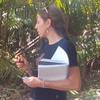
Nathalie Cialdella
French Guiana+
Nathalie Cialdella, 42 years old, PhD in Agricultural Sciences, researcher at CIRAD – UMR Innovation, now taking office in French Guiana after seven years in Brazil, state of Pará, where she still carries out research on açaí palm fruit and agroecology. Her work focused on the impact of political and economic incentive frameworks in farmers’ practices changes toward environmental issues, and on the coexistence of different models of food production at the territorial level. She studies the ways in which agroforestry is a model combining food production, income generation and biodiversity conservation in the Amazon.
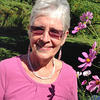
Carol Colfer
USA+
Carol J. Pierce Colfer is a cultural anthropologist who has worked for the Center for International Forestry since 1994. Over her career, she has worked in various interdisciplinary contexts, focusing on education, agriculture, natural resources, and health, respectively. Her work at CIFOR has included criteria and indicators for sustainable forest management, adaptive collaborative management, devolution/governance, human health in forests, landscape management and forest tenure. Most recently her emphasis has been on gender, and at the moment, masculinities, in forests. She is a visiting fellow at Cornell University, in their Southeast Asia program, as well.

George Curry
School of Design and Built Environment, Curtin UniversityAutralia+
George Curry is Professor of Geography in the School of Design and Built Environment, Curtin University, Perth, Western Australia. He uses a sustainable livelihoods approach to investigate smallholder agroforestry systems in cocoa, coffee and oil palm in Papua New Guinea with a view to enhancing productivity and income opportunities for farmers. His research is at the household level and involves extended periods of fieldwork. His research projects have been funded by Australian Centre for International Agricultural Research, the Australian Research Council and the World Bank.
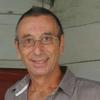
Hubert de Foresta
France+
Ecologist and botanist by training, Hubert de Foresta is Senior Scientist at the Institut de Recherche pour le Développement (IRD, UMR AMAP, Montpellier). His research mostly focused on the management and biodiversity potential of domestic forests, at the interface between forestry and agriculture, in the Humid Tropics where he was based for twenty years (French Guyana, Congo and Indonesia). Coordinator of the FAO study on the assessment of Trees Outside Forests (http://www.fao.org/3/a-aq071e.pdf), he currently is the scientific Editor of “Forests, Trees and Livelihoods” (http://www.tandfonline.com/loi/tftl20), and a member of the Agroecology Committee at the Fondation de France.
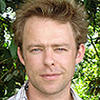
Olivier Deheuvels
CIRADPeru+
Olivier Deheuvels is PhD in Agroecology and works at the French Agricultural Research Centre for International Development (CIRAD) since 1999. He is specialized in tropical agroforestry (AFS) based on perennial crops and has 18 years of experience in Agronomy and Ecology of cocoa and coffee based AFS in Africa (Ivory Coast, Ghana, and Cameroon) and Latin America (Ecuador, Colombia, Peru and Central America). He has been seconded staff at CATIE (Costa Rica) from 2006 to 2014, where he has been working on trade-offs between Biodiversity and Productivity. He is currently seconded staff at ICRAF –Latin America, where his work focuses on the evaluation and participatory design of sustainable AFS. He is the author of more than 70 scientific and technical publications.

Marlène Elias
Italy+
Marlène Elias is a Gender Specialist at Bioversity International, and Gender Research Coordinator for the CGIAR Research Program on Forests, Trees and Agroforestry. She leads gender research and supports gender integration in Bioversity’s work on forest genetic resources, with emphasis on strengthening the capacities of Bioversity staff to conduct participatory, gender-responsive research. Marlène has a BSc in Biology and Environmental Sciences, and an MA and PhD in Geography. Rooted in a feminist political ecology approach, her research focuses on gendered dimensions of forest management and restoration, local ecological knowledge(s), and forest/agri-food value chains, predominantly in West Africa and South and Central Asia.

Laurène Feintrenie
CIRADCosta Rica+
Laurène Feintrenie joined Cirad Forests and Societies research team in 2011, to work on interactions between forests, agriculture and livestocks. Her present research activities focus on the Latin American region in partnership with CATIE (Tropical Agricultural Research and Higher Education Center) and ICRAF (World Agroforestry Center). Her research deals with family farming in forested landscapes and ecological intensification of agricultural practices (agroforestry, conservation agriculture). She has specific expertise on perennial crop systems (oil palm, rubber, coconut, cocoa and coffee) either in monospecific plantations or agroforestry systems, with experience in South-East Asia, Central Africa, Pacific islands and Latin America.

Nuria Ferreiro-Domínguez
Spain+
Nuria Ferreiro-Domínguez is a Forest Engineer with a European PhD from the University of Santiago de Compostela (Galicia, NW Spain). Nowadays she works as researcher in the Agroforestry Research Group of the University of Santiago de Compostela under a postdoctoral research contract of the Galician Regional Government. Her research interests are mainly related to agroforestry, fertilisation, heavy metals accumulation, plant chemical composition and seasonal distribution, biodiversity, climate change and modelling. She has been involved in different regional, national and European agroforestry projects and her research has been published in numerous peer-reviewed international scientific journals as well as in national and international conferences. She is a member of the Executive Committee in the Spanish Agroforestry Association (AGFE) and the National Delegate in the European Agroforestry Federation (EURAF) for Spain.

Kiros Meles Hadgu
Ethiopia+
Dr Kiros Meles Hadgu is a Scientist and Country Representative of World Agroforestry Centre (ICRAF) in Ethiopia. He holds a PhD degree in Production Ecology and Resource Conservation from the University of Wageningen in the Netherlands, and has more than 20 years of experiences in Research and Development in Africa. He is also an affiliate Scientist of Colorado State University, USA. Before he joined ICRAF, he was a Professor in Mekelle University in Ethiopia. His research interest includes intensification and diversification of agroforestry systems, forest landscape restoration and sustainable natural resource management for improving resilience, productivity and profitability of agriculture, ecosystem services, livelihoods, rural jobs and resilience capacities of rural communities to climate changes.

Michael Jacobson
USA+
Dr. Michael Jacobson is a professor of Forest Resources in the Department of Ecosystem Science and Management at Penn State. He has extension, research, and teaching programs that promote sustainable management of forests and other natural resources. He teaches courses in forest economics, global agricultural systems, agroforestry, and international forestry. He has received over 70 grants and contracts and over $4 million in external funding in topics related to forest economics and finance, agroforestry, and bioenergy, invasive species, and land restoration. He has a significant presence in international activities. He is an extraordinary professor at Stellenbosch University in South Africa, in addition to having current projects in Kenya, Morocco, and Zambia.

Patrick Jagoret
CIRADFrance+
Patrick Jagoret is a Cirad agro-economist. Expert in coffee and cocoa cropping systems of West and Central Africa, he was posted respectively in Gabon (4 years), Togo (3 years) and Cameroon (12 years). In addition to several expert missions in many African countries (Gabon, Rwanda, Congo, DCR, etc.), he also intervened in Vanuatu as Director of the cocoa and coffee research Station of Santo (4 years), and in New Caledonia where he was in charge of the coffee program (3 years). Specialist in small African cocoa and coffee farming, in 2011, he graduated with a PhD focused on the agronomic diagnosis and the assessment of cocoa agroforestry systems. Since 2012, he is the Deputy Director of the joint research unit “System” (Functionning and Management of Tropical and Mediterranean Cropping Systems). Patrick Jagoret continues to carry out research to explore the way to improve their cocoa yield and the farmers' practices that drive these systems through technical innovations.
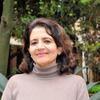
Ramni Jamnadass
Kenya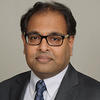
Shibu Jose
School of Natural Resources at the University of MissouriUSA+
Shibu Jose Shi is Professor and Director of the School of Natural Resources at the University of Missouri, USA. Prior to his current appointment he was the H.E. Garrett Endowed Chair Professor and Director of the Center for Agroforestry at the University of Missouri (2009-2017) and Professor of Forest Ecology at the School of Forest Resources and Conservation at the University of Florida (1998-2009). He received his B.S. from India and M.S. and Ph.D. from Purdue University. Current research efforts focus on ecosystem services of agroforestry systems and ecological sustainability of biomass and biofuel production systems. He has received nearly $40 million in funding to support his program during the past 20 years. He has published eight edited books and over 170 research articles. Fourteen Ph.D. and 23 M.S. students have graduated under his supervision. He serves as Editor-In-Chief of Agroforestry Systems, the premier journal in the field of agroforestry published by Springer-Nature.

Anthony Kimaro
Tanzania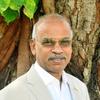
B. Mohan Kumar
Nalanda UniversityIndia+
Professor B. Mohan Kumar, Professor, School of Ecology and Environment Studies (SEES), Nalanda University, Rajgir, India, is a leading researcher in agroforestry. Before joining SEES he worked as Assistant Director General (Agronomy, Agroforestry and Climate Change) in the Indian Council of Agricultural Research, New Delhi. Prior to that he worked for more than 35 years at the Kerala Agricultural University in various capacities. Professor Kumar’s research interests relate to the functional dynamics of tropical agroforestry systems and the effects of forest management practices on ecosystem processes, particularly nutrient cycling, soil fertility, vegetation dynamics, agrobiodiversity and sustainable agroecosystems. He is interested in an integrated research approach to understanding ecosystem processes and solving environmental problems. He was actively associated with the organization of the 2014 New Delhi World Congress on Agroforestry.
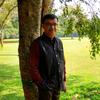
Cheppudira Ganapathy Kushalappa
Dean, College of Forestry, PonnampetIndia+
Dr.C.G.Kushalappa, Dean College of Forestry of the University of Agricultural and Horticultural Sciences, Shivamogga in India is involved in teaching, research and outreach activities in agroforestry for the last 30 years. As third generation coffee grower in the Central Western Ghats of India, a Biodiversity Hot Spot he integrates academic and practical knowledge in promoting sustainable farming through agroforestry aimed at Evergreen revolution. As Indian co-ordinator of European Union Funded CAFNET project facilitated pioneering research to document Ecosystem Services offered by Coffee Based Agroforestry Systems and mechanisms to provide incentives to stakeholders practicing sustainable coffee production. As a farmer and researcher from one of the most diverse agroforestry landscapes in the world, Dr.Kushalappa intends to continue his passion to sustain the agroforestry systems of the Western Ghats for ecological and economic sustainability .

Richard Laity
Laos+
Richard Laity, has been managing a diverse portfolio since 2014 as the Projects and Development Officer for the Programme for Endorsement of Certification (PEFC) South East Asia. From Australia, he is a highly motivated and pragmatic international forest manager and marketer with more than 15 years’ experience across a wide range of demanding roles in urban, farm, industrial and community forestry. He has a BSc in Resource and Environmental Management (specializing in forest management) from the Australian National University. Since 2009, Richard has worked in the Asia Pacific with: NGO’s including TFT, WWF and RECOFTC; Private Sector with Stora Enso and Burapha Agroforestry; and Development organizations such as SPC, EU, JICA and AusAID. Developing and managing smallholder and industrial forest enterprises, he hopes use certification to promote sustainable forest management and responsible marketing.

Norbert Lamersdorf
Germany+
Prof. Dr. Norbert Lamersdorf is a soil scientist and the deputy head of the department of Soil Science of Temperate Ecosystems at the forest faculty of the Göttingen University (Germany). The department is involved in various national and international studies on nutrient and water cycling in forest ecosystems. Since 2006 Norbert Lamersdorf is additionally focusing on the production of woody biomass by plantation and agroforestry systems on the national and the European level (e.g., www.best-forschung.de; www.signal.uni-goettingen.de; www.ratingsrc.eu). As a coordinator and PI in the field of soil science and forest nutrition, his work is strongly based on an interdisciplinary approach, focusing on the impact on plantation forestry and agroforestry systems on various environmental aspects and services. He is a founding member of the 2011 formed EU Agroforestry Federation EURAF as well as the national delegate of the German working group "Agroforst" (www.agroforst.org).

Rodel Lasco
Philippines+
Dr. Rodel D. Lasco has more than 35 years of experience in natural resources and environmental research, conservation, education and development at the national and international level. His work has focused on issues related to natural resources conservation, climate change and land degradation. Since 2000, he is an author of several reports by the IPCC, the 2007 co-winner of the Nobel Peace Prize. He is also a member of the National Academy of Science and Technology (NAST) in the Philippines. He is the Philippines Coordinator of the World Agroforestry Centre (ICRAF) since April 2004, a center devoted to promoting “tree on farms”. Concurrently, he is the Scientific Director of the OML Center, a private foundation whose mission is to promote research on climate adaptation and disasters risk reduction. He is an affiliate professor at the University of the Philippines at Los Banos.He has over 80 technical publications in national and international journals dealing with the various aspects of natural resources conservation and environmental management. He pioneered research in the Philippines on climate change adaptation in the natural resources sector, the role of tropical forests in climate change.

Bohdan Lojka
Czech University of Life Sciences in PragueCzech Republic+
Bohdan Lojka is associate professor and head of Department of Crop Sciences and Agroforestry at the Czech University of Life Sciences in Prague. He is a president of the Czech Agroforestry Association and a coordinator of MSc study program “Tropical Forestry and Agroforestry”. He was a supervisor of nearly 40 MSc students and several PhD students, and currently is teaching several courses focusing on tropical or temperate agroforestry. Research topics cover the area of the potential of agroforestry for biodiversity conservation, genetic diversity of agroforestry tree species, adoption of agroforestry systems etc. He was a leader or team member of several development projects in Peru, Vietnam and Kyrgyzstan with the main focus on implementation of agroforestry systems among small farmers.

Alejandra Martinez
CATIECosta Rica+
Alexandra Martinez is a tropical applied ecologist and ornithologist broadly interested in biodiversity conservation in human-modified landscapes. Most of my work focuses on understanding the conservation value of agricultural land uses using bird communities as proxies of biodiversity. I´m particularly interested in experimental methods that allow measurement and quantification of ecosystem services and in understanding the trade-offs between biodiversity conservation, ecosystem service provisioning and food production. I received a B.Sc. in Ecology and Development at the Central American University (UCA) in Nicaragua, a M.Sc. in Management and Conservation of Tropical Forests and Biodiversity at CATIE, Costa Rica and a Ph.D. in Natural Resources within the Joint Doctoral Program between CATIE and the University of Idaho
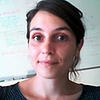
Delphine Meziere
INRAFrance+
Dr Delphine Mézière is an agronomist at the French National Institute of Agricultural Research (INRA). After a PhD on weed services and disservices in cropping systems, she joined the UMR SYSTEM in 2014 to work on the design and evaluation of silvoarable alley cropping systems. She is particularly interested in an often forgotten component of agroforestry systems: the non-crop vegetation that grows under the tree lines and adjoins crop alleys. The objective is to evaluate the services and disservices provided by this understorey vegetation strip for the agroecosystem.
She is also responsible for the coordination of the RMT AgroforesterieS, a French national network of research, development and training professionals involved in agroforestry in the broad sense (including hedgerows), which aims at transfer and innovation for agroforestry deployment: rmt-agroforesteries.fr
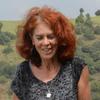
Geneviève Michon
IRDFrance+
Ethnobiologist (Ph.D), currently permanent senior scientist at IRD (UMR GRED). I currently have a 35 years-long work experience related to societies/forest (nature) relationship. I work on the dynamics of local knowledge and agro-silvo-pastoral management practices confronted to the implementation of environmental or development policies and to State action. I carried out my research with tropical forest societies for 20 years (Congo, Indonesia), then moved to the Mediterranean where new policies targeting local products protection and valorization are being developped and implemented that displace the content and value of local knowledge in family agriculture. I am also focusing on the evolution and acknowledgement of local knowledge related to climatic risk management in traditional agro-silvo-pastoral systems. Another part of my activity relates to tourism development in and around protected and rural areas and the relationship between tourism development and the valorization of natural heritage.

Peter Akong Minang
Kenya+
Peter A. Minang is a Principal Scientist and Theme Leader for Landscapes Governance at the World Agroforestry Centre (ICRAF), Global Coordinator, ASB Partnership for the Tropical Forest Margins and Flagship Leader, Landscapes- Forest Trees and Agroforestry (FTA) Research Programme of the CGIAR.
He has more than 20 years experience working on conservation, community forestry, climate change forestry, sustainable landscapes and ecosystem services in Africa, Latin America and Asia. His current research interests include the nexus between adaptation and mitigation to climate change; and the interface between environmental services, development and multifunctional landscapes with a specific interest in the role of tree commodities landscapes. He is very passionate about driving transformative change in Africa
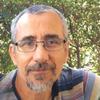
Gerardo Moreno
University of ExtramaduraSpain+
Gerardo Moreno PhD in Biology, teaches Soil Science and Forest Planning at Forestry School, University of Extremadura, where is member of INDEHESA, the Institute for Silvopastoralism Research. He is specialized in the functioning of forest and agroforestry systems with a focus on functioning, management and persistence of Iberian dehesas. His expertise is in the field of soil and water nutrient dynamic, soil carbon, plant-soil interactions, tree-understory interactions and ecophysiology. He has published > 70 articles in SCI journals and has been involved in several EU Projects (SAFE, BioBio, AGFORWARD, BIOGEA, REGENERATE, PRODEHESA-MONTADO), multidisciplinary research projects focussed on natural resource management and on various biophysical and social aspects of the European agroforestry systems, especially for wood pastures.
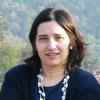
Maria Rosa Mosquera-Losada
Spain+
Dr María Rosa Mosquera-Losada, Distinguished Professor of the Crop Production and Project Engineering Department of the University of Santiago de Compostela. Current President of the European Agroforestry Federation and the Spanish Agroforestry Federation. Chair of the Arable Crop working group of the Global Research Alliance (official IPPC observer) and of the “Enabling Environment working group” of the Global Alliance for Climate Smart Agriculture (FAO). Editor of the books “Silvopastoralism and Sustainable Land Management” (CAB International) and “European Agroforestry Federation·” (Springer). Author of over 400 peer reviewed papers, 70 of which are indexed in the JCR (90% of papers in the first decile) about the subject of agroforestry. Main responsible of the reports of “Biodiversity indicators on silvopastoralism across Europe” written for the European Environmental Agency and “Current status of Agroforestry EU policy” and “Agroforestry Policy recommendations for EU” as leader of the Policy section of the AGFORWARD Project.
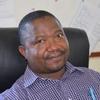
Betserai Isaac Nyoka
Malawi+
Dr Betserai Isaac Nyoka is a Tree Scientist and Nodal (Southern Africa) Leader with the World Agroforestry Centre based in Lilongwe, Malawi. Isaac has a PhD is forestry genetics and tree breeding, and has over 28 years of research experience in agriculture, forestry and agroforestry research in Southern Africa. He started his carrier in government service (Zimbabwe) before joining parastatals (Forestry Commission and Kutsaga Research Company) where he headed the breeding programmes. Isaac had a short stint with the South Dakota State University, Brookings, South Dakota, USA as a post-doctoral research fellow before joining the World Agroforestry Centre. Isaac’s interests cover tree domestication, selection and breeding, tree germplasm supply systems and integration of trees on farms to enhance overall farm productivity, improve tree cover and enhance resilience to climate change. Isaac has published extensively on tree breeding and germplasm supply systems. Isaac has also been an external examiner (PhD thesis) for Zimbabwean and South African universities. His interests include research in agroforestry, tree domestication, breeding and conservation, and teaching and farming.
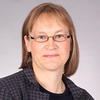
Maren Oelbermann
School of Environment, Resources and Sustainability, University of WaterlooCanada+
Dr. Oelbermann is an Associate Professor in the School of Environment, Resources and Sustainability, University of Waterloo, Canada. Her work centres on fundamental and applied research into the functions and processes regulating carbon and nitrogen transformations in complex agroecosystems, including agroforestry systems, in temperate and tropical biomes. Dr. Oelbermann has also contributed to establishing agroforestry community gardens in subarctic Canada to enhance food security in First Nations communities. Other research includes using agroforestry as a tool for climate change adaptation in Costa Rica; and the effect of climate change on tropical agroforestry tree seedlings and on soil processes; greenhouse gas emissions from short rotation bioenergy plantations; and greenhouse gas dynamics from terrestrial and aquatic components of riparian forests. See www.moelbermann.com for further information.

Alain Olivier
Faculty of Agricultural and Food Sciences at Université LavalCanada+
Alain Olivier is a Full-Time Professor in Agroforestry in the Faculty of Agricultural and Food Sciences at Université Laval, Québec, Canada. He holds a BSc in Agronomy and a PhD in Plant Biology. He is director of the Interdisciplinary Group of Research in Agroforestry as well as of the Chair in International Development of Université Laval.
His research program focuses on analyzing the constraints and incentives to the implementation of agroforestry systems, in an interdisciplinary perspective, including insights on technical, ecological, social, economic and policy aspects. He is also interested in the contribution of agroforestry to food security and to the mitigation of and adaptation to climate change.
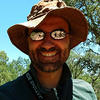
Joao Palma
University of LisboaPortugal+
Dr. Palma carries research for the development of scientifically sound methods to support forest ecosystems management by the public administration, non industrial forest owners, industry, non governmental organizations and concerned citizens. His main focus is in forest and agroforestry modelling, process (physiological) and empirical (statistical) models with an emphasis on the development of user-friendly interface development, including geographical information systems and web-based tools.
The main research interests lie in land use change towards sustainable solutions where agroforestry can play an important role with a higher resource use efficiency, delivering wider ecosystem services than agriculture or forestry alone.

Anastasia Pantera
TEI of Central GreeceGreece+
ANASTASIA PANTERA is professor at the Department of Forestry and Natural Environment Management, TEI of Central Greece, at Karpenissi, Greece. She has a Doctoral diploma on Agroforestry from Aristotle University of Thessaloniki and a M.Sc. diploma from Purdue University, USA on Forest Ecology and Biology. She has organised six (6) stakeholders groups meeting throughout Greece on agroforestry. She has coordinated 8 research projects on agroforestry, forest ecology, ecology and vegetation, environmental education, long-distance learning and participated in 12 as team member on climate change, land rehabilitation after forest fires and on environmental education. She has taught courses on agroforestry, forest soils, forest ecology, and forest vegetation. She has 102 publications in scientific journal, conference proceedings and books. She acts as scientific editor in two international scientific journals. She was invited speaker in 14 conferences.

Joana Amaral Paulo
ISAPortugal+
Joana Amaral Paulo is a PhD in Forest and Natural Resource management. Researcher at the School of Agriculture (ISA) from the University of Lisbon. The main objective of the work being carried out is to contribute to increasing knowledge regarding sustainable management alternatives in agroforestry systems in Portugal and in Europe. The main tools used to reach this objective are modeling and applied statistics methodologies, supported by a robust and increasingly vast data set that covers a diversity of stand, management, climate and soil conditions. Cork and the cork oak tree, the montado and silvopastoral systems, are the prevailing species and ecosystem in the long-term career development plan. Founding member of the European Agroforestry Federation (EURAF), currently secretary of the executive board elected in May 2016.
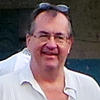
Eric Penot
CIRADFrance+
Eric Penot has been working at ICRAFin the 1990's in Indonesia and began to work on rubber agroforestry practices in indonesia and Thailand. He later add some work on clove agroforestry systems in Madagascar/Les Comores, as welle as on cacao/coffee based agroforestry systems in Ghana and recently in Nicaragua. As a socio-economist, he tried to to analyse farmers 'income and strategies using farming system modelling(with the softaware Olympe) to assess impact and direct (as well as indirects) returns of agroforestry parctices. He's based in Montpellier since 2014.

Andrea Pisanelli
National Research Council of ItalyItaly+
Andrea Pisanelli is researcher at the National Research Council of Italy, Institute of Agro-environmental and Forest Biology (CAN-IBAF). He has been involved in several European agroforestry research projects (SAFE, AGFORWARD, AFINET, SUSTAINFARM) carrying out studies and researches mainly dealing with sociological aspects (participative approach, value chain analysis) and policy issues (European and national policies supporting agroforestry). He is currently national delegate for Italy of the European Agroforestry Federation (EURAF) and member of the Italian Agroforestry Association (AIAF). He has been member of the Scientific Committee of the Third and Fourth European Agroforestry Conference. He has established collaborations with FAO and World Agroforestry Center carrying out research projects in western Kenya. He is involved in the constitution of the International Union of Agroforestry (IUAF). He is coauthors of peer-review papers dealing with agroforestry systems as well as reviewer for Agroforestry Systems journal.
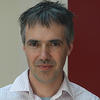
Tobias Plieninger
Universities of Göttingen & KasselGermany+
Tobias Plieninger is Professor of Social-Ecological Interactions in Agricultural Systems at the Universities of Göttingen and Kassel in Germany. His research interests are located within the field of sustainability science. His work is currently focused on the topics of landscape change, multifunctional land use, ecosystem services and social-ecological resilience. He was coordinator of the EU-funded research project “Sustainable Futures for Europe's Heritage in Cultural Landscapes (HERCULES)“ and has been work-package leader within the EU-projects “Agroforestry that will Advance Rural Development (AGFORWARD)“ and “Spurring Innovations in Forest Ecosystem Services in Europe (SINCERE)“.

Ravi Prabhu
Kenya+
Ravi Prabhu is the Deputy Director General-Research at the World Agroforestry Centre (ICRAF). He is interested in exploring how, with the help of trees, (restored) ecosystem health in production landscapes can deliver multiple, enhanced benefits for humans as well as ecosystem services. In this context he is curious how research in/for development can support the emergence of high-output, low-input agricultural systems that are resilient, equitable and aspirational. He has over 25 years of international research and development experience related to supporting sustainability in forest and agricultural landscapes. Prior to joining ICRAF in January 2012 he led the UNEP team within the UN-REDD Programme from August 2009. Before this he led a joint initiative of the 15 international agricultural research centers of the CGIAR from January 2007. For the 12 preceding years he worked at the Center for International Forestry Research (CIFOR). He earned his professional degree and doctorate in forestry from the University of Goettingen, Germany. He holds a BSc in Chemistry from the University of Delhi. He received the Queen’s Award for Forestry at Buckingham Palace in 2005 and was a co-recipient of the Sheikh Zayed 2nd Prize for the Environment in 2006.

Valentina Robiglio
+
Valentina Robiglio is a forest ecologist with more than 15 years of experience on family farmers natural resources management systems and the landscape level outcome of their practices across Central Africa and Latin America. She joined the World Agroforestry Centre in 2012, and since then her research has focused on strategies to promote agroforestry uptake and sustainable intensification by smallholders living at the forest frontiers. Between 2016 and 2017 she has coordinated a study on Agroforestry Concession in Peru, an innovative policy mechanism that seeks to reduce deforestation and restore degraded land by engaging farmers in a tenure formalisation process. In parallel, she has been working on understanding the leverages for adopting climate-smart practices in coffee and strategies for scaling agroforestry based oil palm in Brazil. She is engaged in the policy/science debate about family farmers in the Amazon of Peru and interested in understanding how science can support the transition towards sustainability in agriculture in particular agroforestry.

Adolfo Rosati
CNR-IBAFItaly+
Dr. Adolfo Rosati (Ph.D., University of Perugia) has been a research scientist at the Council for Agricultural Research and Economics (CREA), in Italy, since 1996. He has worked at the University of California at Davis, USA (total of about 5 years), and at the Agroforestry Center of the University of Missouri, USA, as a Fulbright scholar. He works on agroecology, agroforestry, ecophysiology, floral and fruit biology, and tree growth. He was the principal investigator for CREA in AGFORWARD (www.agforward.eu), the largest agroforestry project funded by the European Commission. He is a founding member of the European Agroforestry Federation (EURAF) and has served in its executive committee, and as a member of the scientific committee in all the European Agroforestry Conferences organized by EURAF. He was a founder and the first coordinator of the Agoforesty working group of the Italian society for silviculture and forest ecology (SISEF). He has published over 200 papers on both national and international peer review journals, including co-authoring two book chapters on international agroforestry books.

Diaminatou Sanogo
Sénégal+
Dr. Diaminatou SANOGO is senior researcher at the Senegalese Institute for Agricultural Research (ISRA). Also, she is the director of the National Forest Research Center (CNRF) of ISRA. She is the focal point of ICRAF in Senegal and coordinator of the Senegalese team of the International Research Group of Agro forestry Systems in West Africa (GDRI AGRAF). She represents the institute on the National Committee on Climate Change (COMNAC) and sits on the technical committee of the Green Climate Fund in Senegal. Dr. SANOGO has always been interested in issues related to adoption and has carried out participatory action research to promote the collective ownership of agro-forestry technologies. She has developed a climate-smart village model in the Kaffrine region of Senegal, a model that is documented in numerous publications.

Jean-Pierre Sarthou
France+
Jean-Pierre Sarthou, Professor in Agroecology-Agronomy, INP-ENSAT/INRA, Toulouse, France.
I have been working for many years in landscape ecology applied to both conservation ecology and crop protection, mainly with hoverflies (Diptera, Syrphidae) as a model of bioindicators as well as beneficial insects, but also with other insect and invertebrate groups. As such, we demonstrated how different types of semi-natural habitats (among which those of agroforestry) and different management practices can influence the populations at different landscape organisation levels, and showed in particular the importance to precisely describe local habitat features and agricultural practices in order to disentangle their importance in relation to more global agroenvironmental parameters. Since a few years, I undertook to analyse those high-organisation level agroenvironmental parameters in comparison to various soil bio-electrochemical parameters, depending on different cropping systems.
Sara Scherr
EcoAgriculture PartnersUSA+
Sara Scherr is founder, president and CEO of EcoAgriculture Partners, a leading non-profit champion of integrated landscape management, helping communities and organizations grow healthy and resilient places from the grassroots up. Dr. Scherr is an agricultural and natural resource economist specializing in land management policy in tropical developing countries. She has been a prominent voice globally in promoting the restoration of degraded agricultural lands for food security and rural livelihoods, and is a leading innovator in integrated landscape management. She is an expert in the economics of sustainable agriculture and agroforestry and the design of payments to farmers and farming communities for ecosystem stewardship. She has co-developed and led agricultural landscape leadership courses in Latin America and Africa, and taught for a decade in the prestigious Berkeley Environmental Leadership Program professional short course. She founded EcoAgriculture Partners in 2002, and in 2011 co-founded the global Landscapes for People, Food and Nature Initiative, which she now chairs. From 2002 to 2005 she was a member of the Millennium Project Hunger Task Force. She previously served as Director of Ecosystem Services at Forest Trends, as a senior researcher at the International Food Policy Research Institute, and as a principal researcher and later on the Board of the World Agroforestry Centre.

Josiane Seghieri
IRDFrance+
Dr. Josiane Seghieri is Research Director at the Institut de Recherche pour le Développement (IRD), in the Joint Research Unit HydroSciences Montpellier (HSM), France. Plant ecologist, she has been working since 1991 on functioning and adaptation of native vegetation in Sudano-Sahelian Africa. From her works on woody species, she became leader of multi-disciplinary international projects on agroforestry parklands in West Africa. Since 2018, she coordinates the franco-african multi-disciplinary international research group-South (GDRI-Sud IRD) entitled “Agroforestry Systems in West Africa” (AGRAF 2018-2020), which includes scientists from Niger, Burkina Faso, Senegal and Ivory Coast, and their IRD and CIRAD partners. She is also leader of the Leap-Agri Euro-Africa Eranet Cofund project on “Roles of Agroforestry in sustainable intensification of small farMs and food SEcurity for SocIetIes in West Africa” (RAMSESII 2018-2021)

Fergus Sinclair
Kenya / United Kingdom+
Fergus Sinclair is Leader of Systems Science at World Agroforestry (ICRAF), on the faculty in the School of Natural Sciences at Bangor University, Leader of the Livelihood Systems Flagship of the CGIAR Research Program on Forests Trees and Agroforestry (FTA) and project team leader for the report on agroecology for the High Level Panel of Experts (HLPE) of the UN Committee on World Food Security (CFS). He is known for applying a systems perspective to agroforestry, considering agronomic, conservation and economic dimensions, pioneering work on acquisition of local knowledge and developing and applying novel methods to understand and model complex social-ecological systems at field, farm and landscape scales. He has developed negotiation support tools for exploring trade-offs and synergies amongst impacts of land use change on ecosystem services and a new research ‘in’ development paradigm that applies systems science at the scale of impact required to meet the UN SDGs. He co-authored a book on effects of trees on crops and soil fertility in 2003 and a review of their impacts on the living components of soil a decade on. He contributed to insights on aspects of vulnerability, empowerment and equity, that were applied to developing participatory methods to design more diverse and inclusive agroforestry options for smallholder farmers. See full googlescholar profile here. He has holds a BSc in Agriculture from Reading University and obtained his PhD from the Department of Forestry and Natural Resources at Edinburgh University.
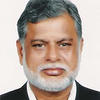
Virendra Pal Singh
India+
Virendra Pal Singh is a Senior Advisor for Policy and Impact at the International Center for Research in Agroforestry (ICRAF). He was among major forces for developing and bringing out the National Agroforestry Policy for India. From 2003 to 2014 Dr. Singh was ICRAF'S founding Regional Director for South Asia. In 2014 he tirelessly contributed to the successful 3rd International Congress of Agroforestry in New Delhi.Prior to ICRAF, he worked at the International Rice Research Institute (IRRI) for over two decades, as Problem Soils Specialist, and as Senior Agronomist & Team Leader, Rain-fed Rice Farming Systems. Dr. Singh has a Ph. D degree in Soil and Water Management and brings along with him a cumulative experience of over 40 years.
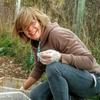
Jo Smith
United Kingdom+
As Principal Agroecology researcher at the Organic Research Centre, UK, Jo is responsible for the agroforestry programme, and is working on a range of European projects investigating the value of agroforestry as a way of reconciling production with protection of the environment. Her research covers both modern agroforestry systems (silvopastoral and silvoarable) as well as investigating approaches to making better use of existing woody landscape resources such as hedgerows. With a background in soil biodiversity, Jo also has a keen interest in the effects of agriculture on biodiversity, both at a field- and landscape-scale. Jo is an executive committee member of the Farm Woodland Forum (UK agroforestry network) and a country delegate for the European Agroforestry Federation.

Eduardo Somarriba
CATIECosta Rica+
Eduardo has a BS in Biology and Natural Resources, a Masters’ degree in tropical forest ecology, and PhD in Agroecology (biology) by the University of Michigan. He has been an active researcher, educator, and advisor/consultant in agroforestry to various governments and private companies over the last 34 years. He is currently Head of the Program on Agriculture, Livestock and Agroforestry at CATIE, and focal point for the CGIAR consortium on Forests, Trees and Agroforestry, FTA, in CATIE. Eduardo’s current field of research is focused on the optimal management of trees on farms (farming with trees), multi-strata agroforestry systems with coffee and cacao, and the production of timber in farms. He has provided technical advice to governments, development projects, and NGOs in Latin America, led various, science-based development cocoa projects in Bolivia and in Central America, and published nearly 300 publications, including scientific articles, technical manuals, books, and educational materials for university students and farmers.
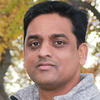
Raju Soolanayakanahally
Agriculture and Agri-FoodCanada+
Raju Soolanayakanahally, upon receiving BSc (Agri) and MSc (Crop Physiology) from the University of Agricultural Sciences, Bangalore, later he moved to University of British Columbia, Canada to obtain PhD in Forest Sciences. In 2010, joined as Research Scientist at Agriculture Agri-Food Canada (AAFC). His research focuses on the development and evaluation of new poplar and willow feedstocks for bioenergy opportunities, carbon sequestration and for environmental services. Recent efforts include the combination of bioenergy and biochar applications to soil, which offer the opportunity to develop a carbon-negative energy technology which at the same time improves the environment. At AAFC, he and his colleagues look at innovative land management within agricultural systems to provide land owners the economic benefits while achieving agricultural sustainability.

Alexia Stokes
France+
Alexia Stokes specialises in the biophysical interactions between tree roots and soil. After obtaining her PhD in tree biomechanics from the University of York, U.K., Alexia moved to INRA France. Focusing now on tree root growth and functional traits in different environments, Alexia aims to better understand the temporal and spatial feedback between plant root diversity and soil structure.

Hesti Tata
Indonesia+
Hesti Lestari Tata is a plant ecologist by training and a researcher of Forest and Environment Research Development and Innovation Agency (FOERDIA), Indonesia. She has an experience working in the lowland dipterocarp forests and tree-based agroforestry systems in Sumatra and Kalimantan, Indonesia. She holds a PhD degree from the Department of Plant Ecology and Biodiversity, Utrecht University. She actively works in action research with farmers who manage natural regeneration. She conducted her Post Doctoral Research in the developing Agroforestry in restoration of degraded peatlands in Indonesia funded by the World Agroforestry Centre (ICRAF) in 2012-2014. She published several publications in several international and national peer reviewed journals, books, and proceedings. She is also an Editorial member of the Indonesia Journal Forestry Research (IJFR) and Jurnal Penelitian Hutan Tanaman (Journal of Plantation Forest Research).

Naresh Thevathasan
University of GuelphCanada+
Dr. Naresh Thevathasan works for the University of Guelph as an Associate Professor in the school of Environmental Sciences. He has worked on food security and international developmental projects in Ghana, India, Nepal, DR Congo, Egypt, Rwanda, Tanzania and Chile. He is also one of the advisory committee members in the Ontario Ministry of Environment and Climate Change (MOECC)’s Voluntary Carbon Offset Program. He received his Ph.D in agroforestry from the University of Guelph, Canada in 1998 and received an honorary Doctor of Science degree in 2011 for his agroforestry and food security work in Ghana (west Africa).
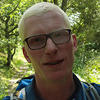
Niels Thevs
Kyrgyzstan+
Dr. Thevs started to work for ICRAF by end of 2014 to develop a research program for ICRAF for Central Asia and set up ICRAF’s office for that region. His research work in Central Asia concentrates on agroforestry as pillar of forest landscape restoration and the relationship between agroforestry systems and water resource management in this arid region. Before that, he worked as a researcher at University of Greifswald. There, he was responsible to develop and carry out research projects in the fields of sustainable land use in riparian oases and drylands of Central Asia. Next to research, he was involved in teaching (GIS, remote sensing, and soil science) in the international Master Course Landscape Ecology and Nature Conservation at University of Greifswald. Dr. Thevs obtained his PhD in Landscape Ecology at University of Greifswald and a Diploma in Biology and Soil Sciences from University of Hamburg. Between the Diploma and the PhD course, he developed projects in the field of environmental education with various organizations from China.

Abasse Amadou Tougiani
INRANNiger+
Dr. Abasse Amadou Tougiani is an Agroforester, specialized in Tree Improvement and Conservation of Forest Genetic Resources with eighteen (18) years of practical experiences serving as Regional Director of Environment in Agadez, Desert Northern part of Niger from 1992 to 1993, Head of Forestry Research Unit at Maradi Research station from 1993 to 2010. Dr. Abasse is now Director Agricultural Research Centre of Maradi, Niger and is an Associate Scientist at World Agroforestry Research Centre for West and Central Africa and is also a country representative for ICRAF-WCA/Sahel. Dr. Abasse has highly contributed to enhance and highlight the scientific image of INRAN. He has extensively published articles (35) in peer review scientific journals, as well in book chapters and in local papers. His research findings contributed to solve problems related to the agroforestry parklands, Natural resources Management and to Domestication and Market opportunity. His participation in various Symposia and Colloquia opened for him new horizons of scientific research collaboration at international level. He is member of scientific Committee at Post Graduate School in University Abdou Moumouni, Niamey, Niger. Dr. Abasse assisted for fund raising with CGIARs partners and coordinates at Regional and National level numerous collaborative Research and Development Projects. He has experience in participative Communication for Development. He is a member of scientific committee of African Forestry Research Network (AFORNET) and is also Reviewer of News Forests Journal; journal Forest Ecology and Management and International Forestry Review Journal. He is a member for several Research Networks. He is a part-time lecturer at Agroforestry Master Level in Faculty of Agriculture, University of Niamey, Niger. Dr. Abasse supervised many students from undergraduate to graduate level; and is actually supervising three PhD students. He has conducted numerous consultancies with the International Research Crop Centre for Tropical Semi Arid (ICRISAT), the African Forest Forum (AFF), AGRHYMET, CARE INTERNATIONAL, WORLD VISION and for local Development Project in Maradi region, funded by Switzerland Cooperation for Development. He is very motivating and supporting advisor and trainer with excellent interpersonal and communication skills. Dr. Abasse is a strategic thinker and planner for Agricultural development and problem solving skills.

Philippe Vaast
CIRADVietnam+
Philippe Vaast has a PhD in Soil Sciences from the University of California, Davis, USA. Over the last 35 years, Philippe has been working for CIRAD on coffee and cocoa sustainability, quality, agroforestry, eco-certification schemes and payment for environmental services throughout Africa, Central America, India, South East Asia and China. He is currently working in West Africa and SE Asia on climate change adaptation, carbon emission and mitigation studies. Philippe has been supervising over 15 PhD students and 25 MSc students, and published over 60 papers in peer-reviewed journals. He organized 2 sessions on perennial crops at the 2nd WAC, Nairobi 2009 and one session at 3rd WAC in New Delhi 2014. He is an associate-editor of “Agroforestry Systems” and member of the Board of the International Association on Science and Information on Coffee (ASIC). For the last 7 years, Philippe has been seconded to the World Agroforestry Centre (ICRAF) where he is the principal advisor/cluster leader on perennial crops sustainability for the Forest Trees and Agroforestry CGIAR Program.

Meine van Noordwijk
Indonésie+
Meine van Noordwijk is a Distinguished Science Fellow at the Word Agroforestry Centre (ICRAF), Professor of Agroforestry at Wageningen University, and Advisor at Brawijaya University (Malang, Indonesia). An ecologist by training, he has 40 years of work experience (publication record), mostly in the context of tropical agroforestry, bridging between the details of roots and soil carbon, the productivity of land use system, the quantification of ecosystem services, simulation models that connect spatial patterns and temporal processes across these scales (incl. Fractal branching analysis, WaNuLCAS, GenRiver, FALLOW), and more recently the institutional arrangements to provide effective economic rewards to land users. While most of his work experience is in Southeast Asia, he worked for two years in (Southern) Sudan, and has been active for 20 years in the ASB Partnership for Tropical Forest Margins, in multiple roles. He co-chaired the GFEP study on forest and water.

Andrea Vityi
Hungary+
Andrea Vityi graduated in Environmental Engineering (2000) and Energy Management (2003). She obtained the PhD degree at University of West Hungary, Sopron (Hungary) in Environmental Science (2006). She currently works as associate professor at the University of Sopron and as project scientific leader at the University of Sopron Cooperational Research. Her main research interests are agroforestry, multipurpose utilisation of biomass and resilience of agriculture to climate change. She participated as researcher in EU FP7 AGFORWARD project and currently works within H2020 AFINET project and several national agroforestry-related projects. She contributed as expert to the work of the EIP-AGRI Focus Group „Agroforestry: introducing woody vegetation into specialised crop and livestock systems”. Mrs Vityi has memberships in the European Agroforestry Federation (Executive Committee member) and the Public body of Hungarian Academy of Sciences (member). She is founder and executive manager of the national civil organisation "Agroforestry Civil Group (ACT)". She is the author of more than 90 scientific articles and research reports, teaching and training material.

Michael Webb
CSIROAustralia+
Dr Webb is a research scientist with CSIRO, Townsville, Queensland, Australia. He has more than 25 years’ experience in tropical farming systems in some 14 tropical countries. His main interests are in nutrient management in nutrient poor farming systems.

Leigh Winowiecki
Kenya+
Dr. Leigh Winowiecki is a Soil Systems Scientist at the World Agroforestry Centre (ICRAF) based in Nairobi, Kenya. She holds a PhD in Soil Science and Tropical Agroforestry through a joint doctoral program between the University of Idaho, USA and CATIE, Costa Rica (2008). Her PhD research focused on nutrient cycling in cacao agroforestry systems and incorporating local soil knowledge into research activities. Her recent work spans from developing soil organic carbon stock accounting methodologies to assessing socio-ecological drivers of productivity and land degradation across diverse landscapes. She currently engages in implementing innovative approaches to achieve land restoration goals in East Africa and the Sahel. She co-leads initiatives for assessing ecosystem health across the global tropics.
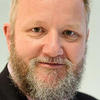
Patrick Worms
Belgique+
Patrick Worms trained as a molecular geneticist and is the Senior Science Policy Advisor of the World Agroforestry Centre, the world’s premier research institution studying the roles of trees in agricultural landcapes; sits on the steering committee of Initiatives for Land, Lives and Peace; is a Trustee of AFS Magyarország and a member of numerous Advisory Boards. Patrick’s work sits at the nexus between land restoration and human security; the evidence is mounting that the clever marrying of traditional and advanced knowledge is the most promosing pathway to rural prosperity and, tantalizingly, peace in a warming world.

Jianchu Xu
China+
Jianchu Xu is an ethnobotanist working on land systems in coupled social-ecological systems. He has strong background in interdisciplinary research. He is the top 1% of global scientists for the most cited documents in plant and animal sciences. His current research includes investigation of early warning signals of global change, ecosystem restoration, forest management, fungi ecology, and integrative tree-crop-livestock systems. After more than thirty years of living and working in eastern Himalayas, he has excellent scientific research networks in Asia. Professor Xu has published over 200 papers in high impact journals including Nature, Science, Proceedings of the National Academy of Sciences, Fungal Diversity, Frontiers in Ecology and Evolution, Global Environmental Change, PLOS Biology andConservation Biology. He is coordinating the Mountain Futures Program, which is a global initiative to support knowledge innovations for smallholders in mountain regions worldwide.

